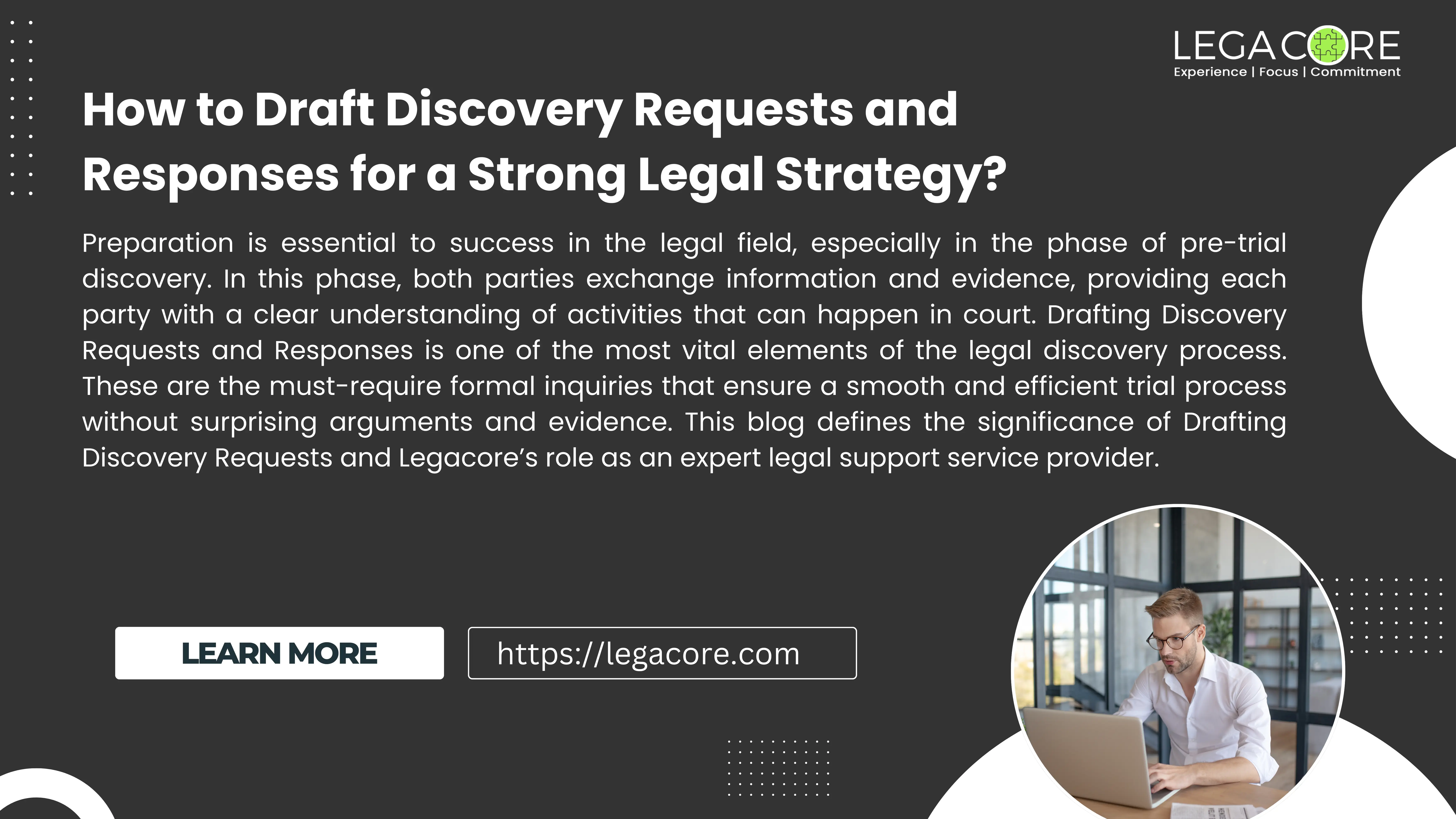Preparation is essential to success in the legal field, especially in the phase of pre-trial discovery. In this phase, both parties exchange information and evidence, providing each party with a clear understanding of activities that can happen in court. Drafting Discovery Requests and Responses is one of the most vital elements of the legal discovery process. These are the must-require formal inquiries that ensure a smooth and efficient trial process without surprising arguments and evidence. This blog defines the significance of Drafting Discovery Requests and Legacore’s role as an expert legal support service provider.

A Discovery Request is a formal request from one party to another for specific evidence relevant to the case. It comes under the Federal Rules of Civil Procedure (FRCP) 34, which defines the method for requesting physical documents, evidence, or electronically stored information. Interrogatories, subpoenas, depositions, requests for production, and requests for admissions come under such requests. After a Discovery Request is issued, the receiving party must respond within the given time frame, typically 30 days. If a party objects to or does not respond to certain aspects of the request, the requesting party can file a motion to compel the opposing side to comply.
Compelling Drafting of Discovery Requests is essential to gather the information required to support a case. An expertly made-request is clear, specific, and detailed. It clarifies all doubts and ensures minimum or no confusion or objection for both legal teams, enabling them to get the required information without delays. It further helps in:
To craft a compelling Discovery Request, legal professionals should follow a step-by-step approach that complies with legal requirements for desired results.
Drafting Discovery Requests and Responses is an intricate process that needs a deep knowledge of legal procedures. Legacore Solutions is a leading legal support provider that ensures the entire process is handled with expertise. By Outsourcing Discovery Requests to Legacore, law firms can ensure:
Drafting Discovery Requests and Responses is an essential component of the legal industry. Firms, looking for assistance to build strong cases can utilize the above-mentioned process to avoid unnecessary complications and gain the required evidence to prevail. With Legacore, law firms can quickly navigate this complex process confidently, and avoid the costly consequences.
+1-305-846-8994 / +1-813-252-2747 (USA),
+91-7894990642
(WhatsApp)
marketing@int.legacore.com